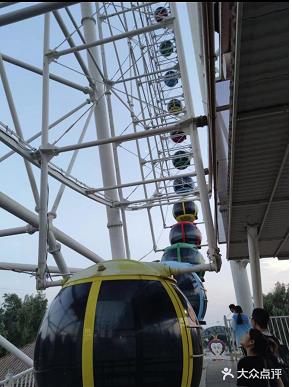神经免疫轴与阿尔兹海默 环球新动态
2023-05-28 03:50:42 来源:北京脑
走进CIBR——
“科学家请出镜”
 (相关资料图)
(相关资料图)
活动简介
从2018年,北京脑科学与类脑研究中心第一批PI——饶毅、罗敏敏起始,“凤凰鸣矣,于彼高岗;梧桐生矣,于彼朝阳”,一位位国内外优秀的人才陆续加入北京脑中心,迄今已有40多位科学家加入。
他们在做什么研究?
短期和长期来看,他们最希望解决的科学问题是什么?
更令人好奇的是,他们为什么选择加入脑中心?
今天开始,我们将陆续请科学家们讲述。
“科学家请出镜”——
石杨实验室
THE YANG SHI LAB
1
请介绍一下您的研究方向
Tell us about the research interests of your lab.
我们实验室主要研究阿尔兹海默症,也就是老年痴呆, 或者是AD。传统上认为AD是一种蛋白病,就是说这种病理性蛋白的累积是造成AD发生发展的原因,然而靶向病理性蛋白的临床药物效果都不是很理想。
我们最近的研究发现,大脑中的免疫细胞-小胶质细胞实际上才是推动AD病理发生及神经退行的一个根本动力,而外周免疫系统也可能通过与中枢的互作参与调控AD的发生发展。因此我们实验室主要是以神经免疫为切入点,系统性地探索神经系统与免疫系统互作的调控机制,以及这种互作如何影响AD的发生发展,并以此为基础进行AD的新型药物研发。
Our lab mainly focuses on the research of Alzheimer’s Disease,also known as senile dementia or AD.Traditionally, AD is considered as a proteinopathy.People think that the accumulation of pathological proteins is the cause of the disease.However, AD drugs targeting pathological proteins have not achieved satisfactory results.
We have recently found thatmicroglia, the resident immune cell type in the brain,provide the primary driving force for AD pathogenesis and neurodegeneration.And the peripheral immune system may also participate inregulating AD pathogenesis through its interaction with the CNS.So our lab utilizes the neuro-immune axis as a cut-in point,to systematically study the bidirectional regulation between the immune and the nervous systemand how their interaction impacts the development of AD.Based on the findings, we will develop novel therapies for AD.
2
短期和长期来看,您最希望解决的科学问题是什么?
What scientific problems do you want to solve most in the short and long term?
首先,因为我们已经看到了小胶质细胞在AD中的关键调控作用,因此在短期内我们的目标是解析小胶质细胞在神经退行状态下激活的分子细胞学机制,找到能够靶向小胶质细胞激活的分子靶点进行药物研发。
稍微长期一点的目标,是理解外周免疫系统以及环境因素对于AD发生发展的调控机制,以及神经系统和免疫系统互作调控的机制。
我们最终的目标,是建立一个完善的神经系统和免疫系统互作调控的知识体系,并以此为基础进行新型AD防治药物的研发。
Since we have already observeda fundamental role of microglia in regulating AD development,our short-term goal is to uncoverthe molecular and cellular mechanisms underlying microglia activation in neurodegenerative conditions, and to identify molecular targets for controlling microglial activation for further drug development.
Our mid-term goal is to understandhow the peripheral immune system and environmental factorsregulate AD pathogenesis,and how the nervous system and the immune system mutually regulate each other.
Our ultimate goal is to establisha complete knowledge network of neuro-immune regulation,and based on that, to develop novel therapies for AD prevention and treatment.
3
为什么选择加入脑中心?
Why choose CIBR?
我觉得主要有几个方面的原因。首先,脑中心是国内少有的真正意义上的新型研发机构,它的各种体系的运作非常高效,一切是以科研为导向,对于科研的支持力度非常大,能够真正实现为了理想而科研,而非为了生存做科研。
其次我觉得脑中心的研究布局非常好,它是以脑科学为主干,涵盖从基础神经科学,到脑疾病,到技术研发,再到人工智能。它的学科交叉性非常强,这也是我的研究所需要的。
第三,脑中心作为一个新兴的机构,非常的有朝气、有活力。它的运行理念是与国际接轨,拥有世界一流的先进技术平台作为支撑,这对于科研非常重要。这里的科研氛围非常浓厚,是我理想中的科研场所。
Personally I think there are several reasons.First of all, CIBR is one of the few institutes in China that fully adopt a new operational system.It has highly efficient administrative departmentsthat are purely research-oriented and direct all kinds of resources to support our research.This enables us to do research for our own dreams without being perturbed by life pressure.
Second, CIBR has very good research layout.Harboring brain science at its core,CIBR covers research fields from basic neuroscience to brain diseases,from technology development to artificial intelligence.The research is highly interdisciplinary,which is essential for my work.
Third, as a fresh institute,CIBR is full of vitality and energy.It is established and operated on high international standards,and is supported by world-leading technology platforms.This is essential for scientific research.In CIBR, the research atmosphere is very strong,it’s an ideal place for doing research.
科学家介绍
ABOUT SCIENTIST
石杨,美国圣路易斯华盛顿大学博士、博士后,致力于阿尔兹海默症发病机制及治疗方案的创新型研究。她的研究以神经免疫轴为切入点,探索免疫系统和神经系统之间的互作,及其在老年痴呆和神经退行性疾病中的调控作用与机制,并以此为基础开发新型AD防治药物。在Nature, Neuron, J Exp Med等国际期刊发表论文,曾获得美国神经化学学会Marian Kies Award和Rainwater 基金会Tau Leadership Award等奖项。2022年7月正式加入脑中心开展研究。
关键词:
为你推荐

陕西两万五千吨市政桥梁完成“转身”

兰州40家A级旅游景区暂时关闭 开放时间暂定

北京丰台初步排查确诊病例密接、次密接258人 组织3万余

四川95岁战斗英雄何开仲有个心愿:想见见山东老战友

增产快!电力生产加速 能源供应偏紧将得到缓解

夏粮和早稻实现双增产 前三季度农林牧渔业增加值同比增

云南瑞丽江桥“守门员”:疫情防控不漏一人

“久病床前真孝子” 浙江男子照顾瘫痪母亲十载

黑龙江:儿童福利机构养育儿童保障标准提至1750元

山西新绛南关村民:因洪水离开家的日子

“十年磨一剑” 黑色矸石山终闻花果香

国家一级保护动物猎隼受伤 内蒙古警方送医救治

一罪犯强行脱逃下落不明 吉林省吉林监狱发布悬赏通告

涉案金额逾3000万 广西一“洗钱”团伙受审

青藏高原有雨雪天气 西南地区江南华南等地有明显降雨

湖南长沙县发现1例外省输入新冠肺炎确诊病例

青海互助:打造全国最大高原草莓种苗繁育中心

照片修复师:每修复一张照片越珍惜与亲人相处的时光

贵州率先在中国实现地质矿产勘查全过程数字化

浙江岱山通报一船沉没 2人获救11人失联
推荐内容
- 陕西两万五千吨市政桥梁完成“转身”
- 河北邯郸发生天然气泄漏事故致3人死亡
- 兰州40家A级旅游景区暂时关闭 开放时间暂定
- 湖北警方打掉两跨省“跑分”洗钱犯罪团伙
- 新冠肺炎疫情下如何保护孩子?张文宏建议设儿童专
- 海南儋州出现1例治愈后的境外输入病例复阳人员
- 男童脊柱侧弯压迫心肺 医生耗时7小时矫正
- 宁夏将开展18岁以上重点人群加强免疫接种工作
- 北京新增1例京外关联本地确诊病例 病例所在街道
- 北京丰台初步排查确诊病例密接、次密接258人 组
- 四川95岁战斗英雄何开仲有个心愿:想见见山东老战
- 增产快!电力生产加速 能源供应偏紧将得到缓解
- 夏粮和早稻实现双增产 前三季度农林牧渔业增加值
- 云南瑞丽江桥“守门员”:疫情防控不漏一人
- 宁夏吴忠核酸阳性者已确诊
- 宁夏吴忠市发现一例外省来吴核酸检测阳性人员
- “久病床前真孝子” 浙江男子照顾瘫痪母亲十载
- 内蒙古额济纳旗5名确诊病例行动轨迹:在同一饭店
- 北京疾控:近期去过这些地方的相关人员请主动报备
- 北京新增1例京外关联输入本地确诊病例
- 增强为民服务能力——做群众最盼事 解群众最难题
- 魏复盛:干一些平凡的实事
- 中缅边境畹町海关查获涉嫌走私海马干4381尾
- 黑龙江:儿童福利机构养育儿童保障标准提至1750元
- 山西新绛南关村民:因洪水离开家的日子
- “十年磨一剑” 黑色矸石山终闻花果香
- 适老化的游戏准备好了吗?电子游戏别忽视老年人
- 国家一级保护动物猎隼受伤 内蒙古警方送医救治
- 西安鄠邑发布2名密接者活动轨迹
- 宁夏吴忠发现一例外省来吴核酸检测阳性人员
- 上海籍阳性夫妻内蒙古行程涉及3个景区、1个民宿、
- 内蒙古额济纳旗启动IV级应急响应 排查出密接者197人
- 内蒙古二连浩特市两地调整为中风险地区
- 泥若二审宣判来了 知名游戏主播山泥若被判刑3年
- 河北邯郸发生天然气泄漏 3人窒息死亡
- 北京丰台报告1例甘肃来京人员新冠病毒核酸检测阳性
- 内蒙古二连浩特两个社区调整为中风险地区
- 一罪犯强行脱逃下落不明 吉林省吉林监狱发布悬赏
- 兰州6人核酸检测呈阳性 主城区局地调整为中风险区
- 涉案金额逾3000万 广西一“洗钱”团伙受审
油气
- 1
- 2
- 3
- 4
- 5
- 6
- 7
- 8
- 9
- 10
经济
-

2022年7月,滴滴全球股份有限公司(在开曼群岛注册成立,于美国纽约证券交易所上市)被罚80 26亿元。这不仅是中国《个人信息保护法》颁布以来
-

中新网通辽10月18日电 (记者 张林虎)18日,记者从内蒙古自治区通辽市奈曼旗公安局获悉,国家一级保护动物--梅花鹿误入当地村民羊群,
-

中新网杭州10月18日电 (王题题 胡燕婕)云天收夏色,浅秋正渐浓。10月18日,浙江杭州市西湖游船有限公司推出的惠民多站点“西湖环湖游
-

中新网福州10月18日电 (记者 龙敏 王东明)福州市晋安区官方18日晚间通报,18日14时47分,晋安区岳峰镇化工路爱摩轮商业广场项目摩天
-

中新网兰州10月18日电 (闫姣 艾庆龙 吉翔)“红山白土头,黄河向西流。”不少人疑问,天下黄河向东流,为何甘肃永靖县这段黄河却向西



